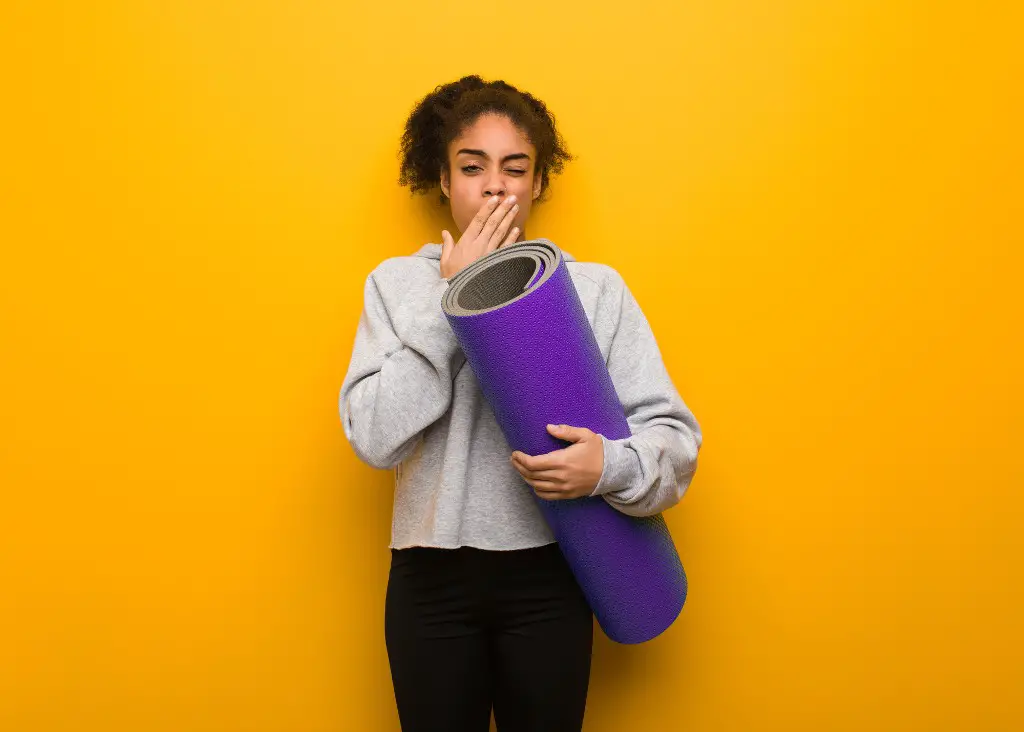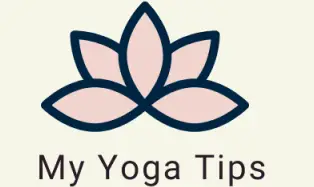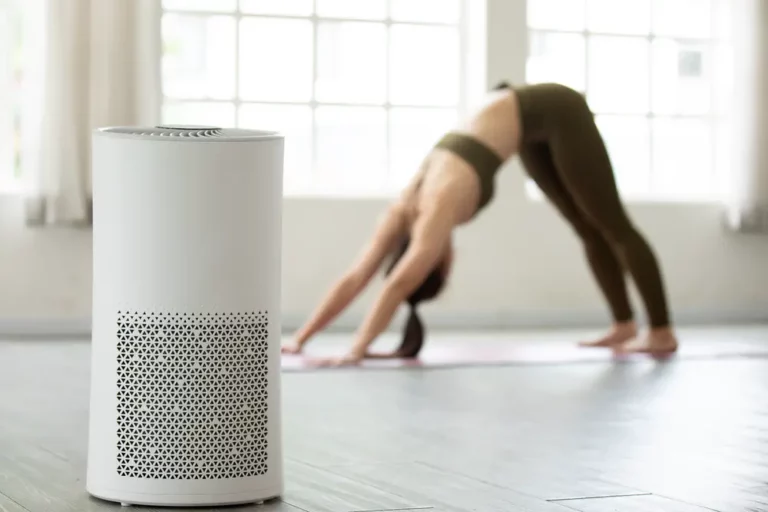Here’s why yoga makes you yawn

Yoga is a great way to stretch tired muscles and recenter before or after your day has started. If you’ve ever caught yourself yawning during yoga, you might have wondered why yoga makes you yawn? Well, we’re answering that question today.
When our minds are preoccupied with an intense activity like yoga, it’s easy to forget or adapt normal breathing patterns. Our lungs take in less oxygen than usual because of slowed breathing. Yawning is a mechanism that helps us allow more oxygen into the blood and move carbon dioxide out.
Yawning during yoga is very normal and sometimes even an excellent way to release built-up tension and reset your breathing pattern through the use of rhythmic breathing.
Physiological Reasons Why Yoga Makes You Yawn
Yawning is an involuntary mechanism that increases oxygen intake by allowing your body to become more aware of shallow breathing and insufficient oxygen uptake.
We often lose track of our set intentions during yoga practice and become overwhelmed with thoughts. This distraction may be one of the reasons you find yourself yawning more during your practice.
Another reason you may find yourself yawning is due to the release of built-up tension.
In an article about anxiety, Kristina Hallett, a clinical psychologist in Connecticut, says that “If I’m ruminating or worrying because I’m anxious about something, what I’m literally doing is increasing the speed and accessibility of that particular anxiety pathway.”
Anxiety treatment involves practicing and replacing those negative thought patterns with less-threatening ones — which coincidentally makes yoga one of the best anxiety treatments.
How Yoga Reduces Anxiety
Experts believe that yoga is one of the best practices to reduce the level of stress hormones circulating in your body.
Your body releases stress hormones — this forms part of the fight or flight response — which can lead to anxiety symptoms.
If you find yourself yawning during practice, Hallett reassures us that “Yawning is one of the body’s relaxation methods to go the other way from the physiological stress response.”
Why Deep Breathing Is Essential In Yoga
Practicing how you breathe is a great way to reduce stress and resultantly reduce the number of stress hormones in the body. When you breathe deeply, you’re signaling to your brain that you’re in a danger-free environment, and it resultantly relaxes.
Which Stress Hormones Are Released When You Yawn?
Yawning is a super important aspect of our general health and well-being. Frequent yawning releases a multitude of neurologically beneficial compounds, including:
- Dopamine (pleasure hormone)
- Acetylcholine (activation hormone)
- Nitric oxide (controls blood pressure)
- Oxytocin (the love hormone)
- Glutamate (aids in learning and memory)
- GABA (reduces neuronal excitability)
- Serotonin (mood stabilizer)
- ACTH (controls production of cortisol)
- MSH (preserves skin and controls appetite)
- Sexual hormones
- Opium-derivate peptides
It’s no wonder we feel more alert and aware after yawning. We’re essentially drinking a feel-good cocktail with every breath.
How Yoga Ties Into The Physiological Responses
Oxygen is our most basic need and fuels our body. When Yogis speak of “prana,” they essentially define oxygen. Prana is considered a life-giving force.
Frequently, people breathe quickly and shallowly throughout their day, but when we find ourselves on the mat, we become conscious of our breath.
Other than conscious breathing, we also release stress. Our stress hormones are incredibly stimulating, and we may not realize how tired we get throughout the day until we come into our space of calm on the mat.

Yogic Breathing
Yogic breathing is a deeply balancing pranayama (breathing exercise) that benefits Vata, Pitta, and Kaph).
Pranayama is a three-part breath because it actively engages all three parts of the torso and naturally causes all three lobes of the lungs to breathe.
This type of breathing revitalizes the body with Prana.
It’s particularly great in benefitting the vital organs, which can quickly become stagnant, constricted, or overwhelmed with emotional and physical tension.
Full Yogic breathing relieves stress, refreshes the mind, and activates the parasympathetic nervous system — the “rest and digest” system.
It encourages a calmer and more balanced state of being and helps us to correct unhealthy breathing patterns.
This pranayama can be engaged throughout the day but works best when practiced with intent for 5 to 15 minutes daily.
Why Is Yawning Contagious?
Contagious yawning occurs due to a phenomenon called social mirroring. Social mirroring states that organisms (not just humans) imitate the actions of others.
Similar behaviors include scratching, laughing, and crossing one’s legs.
Acts of mimicry reinforce many social bonds. If someone smiles at you, for example, you’re likely going to smile back.
This action is a form of communication and may indicate a strong bond between individuals.
Why Yoga Makes You Sleepy
Yoga is known to be a relaxing activity. Here are 8 reasons you may be feeling a little tired during or after your yoga session:
- You’re not sleeping enough.
Getting a good night’s sleep is vital, and not getting enough of it has some severe health risks. When you focus on your body during practice, you’re likely to realize just how sleepy you are.
- You’re not used to stretching.
Yoga practice involves lengthening the muscle fibers, which can be tiring if you’re not used to stretching regularly. While releasing muscle tension can feel refreshing, you may be left feeling quite exhausted after a yoga session.
- You’re building muscle.
Regularly practicing yoga helps to increase your core stability and build muscle.
Basic poses like Warrior II require large muscle groups like quadriceps, glutes, and shoulders to work together to maintain the pose — which in turn builds muscle and may tire you out.
- You’re not focusing on your breath.
Breathing is a core element of yoga. It helps you bring your attention to how your body is feeling and moving.
Being in touch with your breathing may help you enter a meditative state and release unwanted feelings. This release requires a lot of focus and energy.
- You’re getting a workout.
When you exercise, your body needs three to four times your average cardiac output. This process is vital to ensure your muscles receive adequate oxygen and may leave you wanting a nap after your workout.
- You’re not doing the asana correctly.
The poses may be challenging to hold, but they shouldn’t feel impossible. If you’re struggling too much, consider talking to your instructor and working on your technique.
- You’re practicing too advanced moves.
Different types of yoga target different intentions and goals, and diving into Power classes after only a few weeks of yoga practice may be too much for your body.
- You’re taking on a practice that isn’t right for you.
Your needs vary, and your yoga practice needs to reflect that. Sometimes practicing Ashtanga or Bikram may be too taxing. Adjust and conquer your practice according to how you’re feeling.
Rather than fighting sleepy feelings, try to figure out why you’re feeling tired. Maybe you find the cause of a problem you’ve been unable to define for a long time, or perhaps you’re just in need of a good night’s sleep.
Learn more!!! 8 Yoga Tips For Beginners this article will help you with your first steps in yoga
Conclusion
Yoga is a fantastic way to exercise and boasts a multitude of benefits. Deeper and focused breathing is one of these.
There are a few reasons you may find yourself yawning during practice, and that’s great!
Rather than stifling your yawn, embrace it, try to figure out its root cause, and adjust your practice accordingly. Happy yawning!






